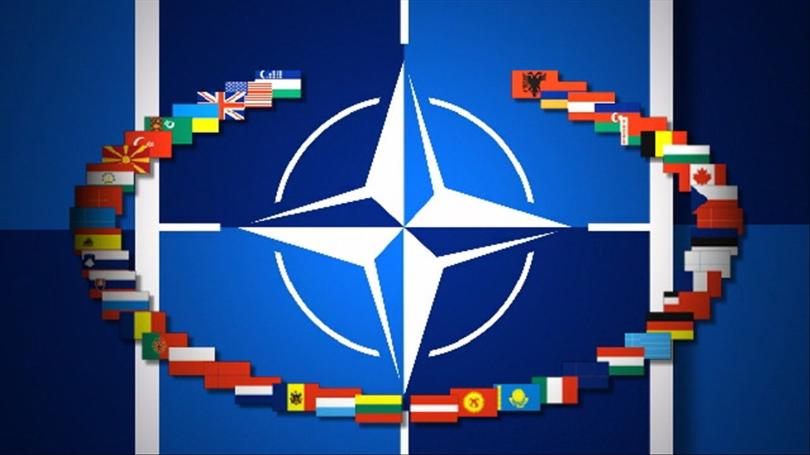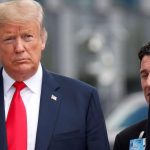In the weeks since US President Donald J. Trump ignored his own military advisors’ warnings and ordered the sudden withdrawal of all American forces in Syria, which then led to an invasion of northern Syria by the Turkish military as the Turks hoped to push out the region’s majority Kurdish population, the West has been on its heels as it attempts to form a new policy on the fly now that its principal ally in Syria, the Kurdish-led Syrian Democratic Forces (SDF), have been decimated by the Turks’ assault across the border.
In the hope of not fully abandoning Syria to a new violent phase in its multi-sided, eight-year civil war, Germany has proposed that a NATO-controlled safe zone be established along the Syria-Turkey border.
The announcement from Berlin came directly on the heels of a deal negotiated by Turkish President Recep Tayyip Erdogan and Russia’s Vladimir Putin in the Black Sea resort of Sochi on 23 October. The deal would force the Kurdish People’s Protection Units (YPG) to retreat withing a week to roughly 20 kilometres from the border, after which time Turkey and Russia would begin conducting joint patrols along most of the Syrian-Turkish border.
Despite the agreement between Moscow and Ankara, Germany’s Defence Minister Annegret Kramp-Karrenbauer has that NATO create a so-called security zone in northern Syria to protect Kurdish civilians displaced by the Turks’ invasion. Kramp-Karrenbauer’s appears to have caught both the German government and NATO off-guard as her announcement without having fully consulted the junior coalition partners, the Social Democrats.
A security zone, Kramp-Karrenbauer argues, would allow NATO to deploy a force that could easily be put into the field in the event ISIS were to reconstitute itself after the Turks inadvertently released hundreds of ISIS prisoners while bombing Kurdish detention centres during their offensive.
With the Americans having already retreated from the area and in the process hastily abandoning their bases to the Russians, Kramp-Karrenbauer finds herself in the awkward position of having to present a plan designed to allow NATO to influence the situation on the ground through while also having to worry about being given the consent to implement the plan from Russia, the Bashar al-Assad regime, and Turkey – who, although a member of NATO – has aligned its interests with the Kremlin rather than with its Western partners, particularly the United States, who backed the Kurds.
Erdogan has agreed with Putin that both Russian and Syrian government forces will deploy to northeast Syria and remove Kurdish YPG fighters and their weapons from an area triple the size of what was directly controlled by Turkish troops after their invasion force crossed the border on 9 October.
Having played a key role in defeating ISIS on the battlefield in early 2017, the Kurds found themselves in control of nearly one-third of Syria. This, however, was seen as a hostile move by the Turks who consider the independence-minded Kurds a threat to their national security. Erdogan has repeatedly equated the YPG and the Syrian Democratic Forces with ISIS, going so far as to say that he saw no difference between the US-allied Kurds and the Islamic State.
Since Erdogan was given the green light by Trump to begin military operations in northern Syria, the Kurds have lost control of nearly all of the territory that they had liberated from ISIS and which they hoped to establish an autonomous Kurdish region that would be largely self-governing and out of the authoritarian reach of Assad’s government in Damascus.
Once the Kremlin and Assad have completed the task of clearing and disarming the Kurdish forces in the areas and joint Russian-Turkish patrols begin across the entire border zone, the areas under direct Kurdish control will have been reduced to the area around their de facto capital, Qamishli.
The Russians and Turks will now control a swathe of northern Syria that is about 120 kilometres long and 32 kilometres deep. Russian troops have already entered two border cities – Manbij and Kobane, both of which hold deep strategic and psychological significance for the Kurds due to their role in the struggle against ISIS – and have taken over an American military base that was quickly abandoned by US forces after Trump abruptly issued his withdrawal order earlier this month.
Erdogan, whose conservative Islamist government had been a staunch opponent of Assad’s for much of the Syrian Civil War, has now reversed course and says that Ankara is willing to accept the presence of Syrian government troops in the areas west of the region controlled by Turkey’s armed forces.
Turkey’s military offensive against the Kurds is expected to be on hold after Erdogan and Putin agreed to establish an so-called security zone where the YPG and SDF would no longer be able to operate. Fighting has continued, however, despite the Russians and Turks to take control of the formerly Kurdish-held territory.
By brokering a deal with Putin, Erdogan has effectively ceded most of the 400 kilometres, and dozens of Kurdish cities, that he claimed would be included in a Turkish occupation zone inside Syria. Ankara has for weeks claimed it is fully justified in quashing the Syrian Kurds’ aspirations for an autonomous region – which would have been modelled on neighbouring Iraqi Kurdistan – or a fully-independent state as it would abutt Turkey’s own southern border regions where the overwhelming majority of the population are Kurds who have also demanded autonomy or independence.
Erdogan’s original plan for the occupation zone was to resettle the more than 2 million mostly Syrian Arab war refugees that currently reside in Turkey in the border areas once populated by Kurds. His plan, however, has been condemned amid accusations that Ankara’s plan to repatriate Syrian Arabs to areas of northern Syria that are traditionally Kurdish amounted to nothing short of ethnic cleansing.
The senior U.S. diplomat on Syria, Jim Jeffrey, dismissed the Sochi deal but Vice President Mike Pence voiced support for the safe zone.
German Chancellor Angela Merkel proposed a summit with France, the United Kingdom and Turkey to discuss the security situation in northern Syria, where 160,000 civilians have been displaced, according to the United Nations Office for the Coordination of Humanitarian Affairs. It now appears there little if at all scope for a European initiative.
The Kremlin’s spokesman Dmitry Peskov warned Kurdish troops on Wednesday that if they don’t withdraw as per the deal between Moscow and Ankara, Syrian borders guards and Russian military police will withdraw, leaving an open field to the Turkish army. Pointing the finger to Washington, Peshkov said that it was US troops that abandoned their Kurdish allies, forcing them to fight with Turkey.
Source: New Europe



